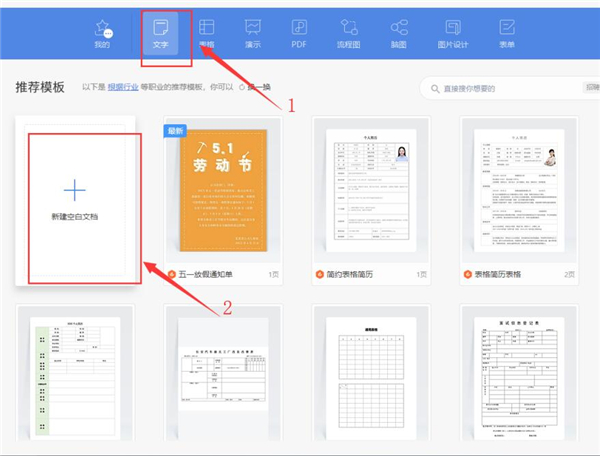FreeBSD4.9 RELEASE下载[本站tigerking 兄已提供ftp下载]
时间:2003-10-28
来源:互联网
ftp://ftp.freebsd.org/pub/FreeBSD/re...i386-disc1.iso
 640.31M
640.31Mftp://ftp.freebsd.org/pub/FreeBSD/re...i386-disc2.iso 252.44M
MD5 (4.9-i386-disc1.iso) = 9195be15a4c8c54a6a6a23272ddacaae
MD5 (4.9-i386-disc2.iso) = 51d28c35308cc916b9a9bfcacb3146b8
ftp://ftp.freebsd.org//pub/FreeBSD/r...E/4.9-RELEASE/
2.本站 tigerking兄提供的FTP下载
freebsd 4.9 ftp下载
ftp://61.185.115.200
user:freebsd
passwd:freebsd
10用户,每IP限2个连接,不限速。
rhel as3.0 ftp下载
包含200RedHat.Enterprise.Server.3.AS(i386).doc
ftp://61.185.115.200
user:linuxfans
passwd:linuxfans
5用户每个IP限一个连接,限速100K。
BT下载-FreeBSD4.9-RELEASE libin 兄提供
做为一种下载方式的补充吧。
BT下载连接:
http://bt.manfen.net/upload/6dc908f7...6ebbc2.torrent
再来一个地址ftp://bsd:[email protected]/freebsd/4.9-i386-disc1.iso
作者: duleell 发布时间: 2003-10-28
FreeBSD/i386 4.9-RELEASE Release Notes The FreeBSD Project Copyright (c) 2000, 2001, 2002, 2003 The FreeBSD Documentation Project $FreeBSD: src/release/doc/en_US.ISO8859-1/relnotes/common/new.sgml,v 1.22.2.386 2003/10/19 18:33:34 bmah Exp $ The release notes for FreeBSD 4.9-RELEASE contain a summary of the changes made to the FreeBSD base system since 4.8-RELEASE. Both changes for kernel and userland are listed, as well as applicable security advisories for the base system that were issued since the last release. Some brief remarks on upgrading are also presented. ---------------------------------------------------------------------- Table of Contents 1 Introduction 2 What's New 2.1 Security Advisories 2.2 Kernel Changes 2.2.1 Platform-Specific Hardware Support 2.2.2 Boot Loader Changes 2.2.3 Network Interface Support 2.2.4 Network Protocols 2.2.5 Disks and Storage 2.2.6 File Systems 2.2.7 PCCARD Support 2.2.8 Multimedia Support 2.3 Userland Changes 2.4 Contributed Software 2.5 Ports/Packages Collection Infrastructure 2.6 Release Engineering and Integration 3 Upgrading from previous releases of FreeBSD 1 Introduction This document contains the release notes for FreeBSD 4.9-RELEASE on the i386 hardware platform. It describes new features of FreeBSD that have been added (or changed) since 4.8-RELEASE. It also provides some notes on upgrading from previous versions of FreeBSD. This distribution of FreeBSD 4.9-RELEASE is a release distribution. It can be found at ftp://ftp.FreeBSD.org/ or any of its mirrors. More information on obtaining this (or other) release distributions of FreeBSD can be found in the ``Obtaining FreeBSD'' appendix in the FreeBSD Handbook. ---------------------------------------------------------------------- 2 What's New This section describes the most user-visible new or changed features in FreeBSD since 4.8-RELEASE. Typical release note items document new drivers or hardware support, new commands or options, major bugfixes, or contributed software upgrades. Security advisories for the base system that were issued after 4.8-RELEASE are also listed. ---------------------------------------------------------------------- 2.1 Security Advisories A remotely-exploitable buffer overflow vulnerability in sendmail has been fixed. For more details, see security advisory FreeBSD-SA-03:07. In FreeBSD 4.8-RELEASE, this vulnerability was fixed using a vendor-supplied patch (but too late for inclusion in the release notes). In FreeBSD 4.9-RELEASE, it has been fixed with the import of a new version of sendmail. A single-byte buffer overflow in realpath(3) has been fixed. See security advisory FreeBSD-SA-03:08. A bug that could allow the kernel to attempt delivery of invalid signals has been fixed. The bug could have led to a kernel panic. For more information, see security advisory FreeBSD-SA-03:09. A bug in the iBCS2 emulation module, which could result in disclosing the contents of kernel memory, has been fixed. This module is not enabled in FreeBSD by default. For more information, see security advisory FreeBSD-SA-03:10. A programming error in the sendmail implementation of its ``DNS maps'' feature has been fixed by the import of a new version of sendmail. More information can be found in security advisory FreeBSD-SA-03:11. Note that this feature is not used by the default configuration files shipped with FreeBSD. A buffer management bug in OpenSSH, which could potentially cause a crash, has been fixed. More information can be found in security advisory FreeBSD-SA-03:12. A buffer overflow in sendmail has been fixed. More information can be found in security advisory FreeBSD-SA-03:13. A bug that could allow the kernel to cause resource starvation which eventually results in a system panic in the ARP cache code has been fixed. More information can be found in security advisory FreeBSD-SA-03:14. Several errors in the OpenSSH PAM challenge/authentication subsystem have been fixed. The impacts of these bugs vary; details can be found in security advisory FreeBSD-SA-03:15. A bug in the readv(2) system call, which could potentially cause a system crash or privilege escalation has been fixed. More information can be found in security advisory FreeBSD-SA-03:16. A bug in procfs(5) and linprocfs(5), which could result in disclosing the contents of kernel memory, has been fixed. More information can be found in security advisory FreeBSD-SA-03:17. Four separate security flaws in OpenSSL, which could allow a remote attacker to crash an OpenSSL-using application or to execute arbitrary code with the privileges of the application, have been fixed. More information can be found in security advisory FreeBSD-SA-03:18. ---------------------------------------------------------------------- 2.2 Kernel Changes A bug that caused atkbd(4) to register an AT keyboard during console initialization, even when no AT keyboard was connected, has been fixed. kbdcontrol -k /dev/kbd1 is no longer needed when only a USB keyboard is connected. The hifn(4) driver now supports symmetric crypto for the 7955 and 7956 chipsets. The safe(4) driver has been added to support SafeNet 1141- and 1741-based crypto accelerators. Warning: This driver should be considered experimental and and should be used with some caution. Note: The public key support is not implemented. ---------------------------------------------------------------------- 2.2.1 Platform-Specific Hardware Support A bug which prevented the kernel from booting on an Intel 80386 processor has been corrected. Support for the Physical Address Extensions (PAE) capability on Intel Pentium Pro and higher processors has been added. This allows the use of up to 64GB of RAM in a machine, although the amount of memory usable by any single process (or the FreeBSD kernel) is unchanged. The pae(4) manual page has more details on this feature. ---------------------------------------------------------------------- 2.2.2 Boot Loader Changes ---------------------------------------------------------------------- 2.2.3 Network Interface Support bge(4) now supports Broadcom 5705 based Gigabit Ethernet NICs. The dc(4) driver once again transmits packets correctly through Davicom DC9102 cards. The proatm driver has been added to support ProSum's ProATM (IDT77252-based) interfaces. This driver is analogous to the patm driver in FreeBSD-CURRENT. The rue(4) network driver has been added, providing support for Ethernet adapters based on the RealTek RTL8150 USB to Fast Ethernet controller chip. The sbsh(4) driver for the Granch SBNI16 SHDSL modem has been added. sk(4) now supports SK-9521 V2.0 and 3COM 3C940 based Gigabit Ethernet NICs. The suspend/resume support for the wi(4) driver now works correctly when the device is configured down. ---------------------------------------------------------------------- 2.2.4 Network Protocols A bug in ipfw(4) limit rule processing that could cause various panics has been fixed. ipfw(4) rules now support comma-separated address lists (such as 1.2.3.4, 5.6.7.8/30, 9.10.11.12/22), and allow spaces after commas to make lists of addresses more readable. ipfw(4) rules now support C++-style comments. Each comment is stored together with its rule and appears using the ipfw(8) show command. ipfw(8) can now modify ipfw(4) rules in set 31, which was read-only and used for the default rules. They can be deleted by ipfw delete set 31 command but are not deleted by the ipfw flush command. This implements a flexible form of ``persistent rules''. More details can be found in ipfw(8). Kernel support has been added for Protocol Independent Multicast routing. ---------------------------------------------------------------------- 2.2.5 Disks and Storage The da(4) driver no longer tries to send 6-byte commands to USB and Firewire devices. Quirks for USB devices (which hopefully are now unnecessary) have been disabled; to restore the old behavior, add options DA_OLD_QUIRKS to the kernel configuration. The twe(4) driver now supports the 3ware generic API. ---------------------------------------------------------------------- 2.2.6 File Systems A new DIRECTIO kernel option enables support for read operations that bypass the buffer cache and put data directly into a userland buffer. This feature requires that the O_DIRECT flag is set on the file descriptor and that both the offset and length for the read operation are multiples of the physical media sector size. ---------------------------------------------------------------------- 2.2.7 PCCARD Support ---------------------------------------------------------------------- 2.2.8 Multimedia Support ---------------------------------------------------------------------- 2.3 Userland Changes arp(8) now supports a -i option to limit the scope of the current operation to the ARP entries on a particular interface. This option applies to the display operations only. It should be useful on routers with numerous network interfaces. chroot(8) now allows the optional setting of a user, primary group, or group list to use inside the chroot environment via the -u, -g, and -G options respectively. ipfw(8) list and show command now support ranges of rule numbers. ipfw(8) now supports a -n flag to test the syntax of commands without actually changing anything. The mount_msdos(8) utility now supports a -M option to specify the maximum file permissions for directories in the file system. systat(1) now includes displays for IPv6 and ICMPv6 traffic. uudecode(1) and b64decode(1) now support a -r flag for decoding raw (or broken) files that may be missing the initial and possibly final framing lines. ---------------------------------------------------------------------- 2.4 Contributed Software The Intel ACPI 20030228 distribution (with local FreeBSD changes and support code) has been imported. This feature should be considered experimental and should be tested prior to being deployed in a production environment. Note: Unlike on FreeBSD-CURRENT, the ACPI driver must be statically compiled into the kernel by adding device acpica to a kernel configuration. There is no kernel module. This driver is not present in the default, GENERIC kernel. groff has been updated from 1.18.1 to 1.19. lukemftpd (not built by default) has been updated from a 1.2beta1 to a 5 January 2003 snapshot from the NetBSD CVS repository. OpenSSL has been updated from 0.9.7a to 0.9.7c. sendmail has been updated to version 8.12.9. texinfo has been updated from 4.5 to 4.6. The timezone database has been updated from the tzdata2003a release to the tzdata2003d release. ---------------------------------------------------------------------- 2.5 Ports/Packages Collection Infrastructure pkg_create(1) now supports a -C option, which allows packages to register a list of other packages with which they conflict. They will refuse to install (via pkg_add(1)) if one of the listed packages is already present. The -f flag to pkg_add(1) overrides this conflict-checking. ---------------------------------------------------------------------- 2.6 Release Engineering and Integration The supported release of GNOME has been updated from 2.2 to 2.4. The supported release of KDE has been updated from 3.1 to 3.1.4. ---------------------------------------------------------------------- 3 Upgrading from previous releases of FreeBSD If you're upgrading from a previous release of FreeBSD, you generally will have three options: * Using the binary upgrade option of sysinstall(8). This option is perhaps the quickest, although it presumes that your installation of FreeBSD uses no special compilation options. * Performing a complete reinstall of FreeBSD. Technically, this is not an upgrading method, and in any case is usually less convenient than a binary upgrade, in that it requires you to manually backup and restore the contents of /etc. However, it may be useful in cases where you want (or need) to change the partitioning of your disks. * From source code in /usr/src. This route is more flexible, but requires more disk space, time, and technical expertise. More information can be found in the ``Using make world'' section of the FreeBSD Handbook. Upgrading from very old versions of FreeBSD may be problematic; in cases like this, it is usually more effective to perform a binary upgrade or a complete reinstall. Please read the INSTALL.TXT file for more information, preferably before beginning an upgrade. If you are upgrading from source, please be sure to read /usr/src/UPDATING as well. Finally, if you want to use one of various means to track the -STABLE or -CURRENT branches of FreeBSD, please be sure to consult the ``-CURRENT vs. -STABLE'' section of the FreeBSD Handbook. Important: Upgrading FreeBSD should, of course, only be attempted after backing up all data and configuration files. ---------------------------------------------------------------------- This file, and other release-related documents, can be downloaded from ftp://ftp.FreeBSD.org/. For questions about FreeBSD, read the documentation before contacting <[email protected]>. For questions about this documentation, e-mail <[email protected]>.
作者: Freebird 发布时间: 2003-10-28
FreeBSD/i386 4.9-RELEASE Hardware Notes The FreeBSD Documentation Project Copyright (c) 2000, 2001, 2002, 2003 The FreeBSD Documentation Project ---------------------------------------------------------------------- Table of Contents 1 Introduction 2 Supported Processors and Motherboards 3 Supported Devices 3.1 Disk Controllers 3.2 Ethernet Interfaces 3.3 FDDI Interfaces 3.4 ATM Interfaces 3.5 Wireless Network Interfaces 3.6 Miscellaneous Networks 3.7 ISDN Interfaces 3.8 Multi-port Serial Interfaces 3.9 Audio Devices 3.10 Camera and Video Capture Devices 3.11 USB Devices 3.12 IEEE 1394 (Firewire) Devices 3.13 Cryptographic Accelerators 3.14 Miscellaneous 1 Introduction This document contains the hardware compatability notes for FreeBSD 4.9-RELEASE on the i386 hardware platform (also referred to as FreeBSD/i386 4.9-RELEASE). It lists devices known to work on this platform, as well as some notes on boot-time kernel customization that may be useful when attempting to configure support for new devices. Note: This document includes information specific to the i386 hardware platform. Versions of the hardware compatability notes for other architectures will differ in some details. ---------------------------------------------------------------------- 2 Supported Processors and Motherboards FreeBSD/i386 runs on a wide variety of ``IBM PC compatible'' machines. Due to the wide range of hardware available for this architecture, it is impossible to exhaustively list all combinations of equipment supported by FreeBSD. Nevertheless, some general guidelines are presented here. Almost all i386-compatible processors are supported. All Intel processors beginning with the 80386 are supported, including the 80386, 80486, Pentium, Pentium Pro, Pentium II, Pentium III, Pentium 4, and variants thereof, such as the Xeon and Celeron processors. (While technically supported, the use of the 80386SX is specifically not recommended.) All i386-compatible AMD processors are also supported, including the Am486, Am5x86, K5, K6 (and variants), Athlon (including Athlon-MP, Athlon-XP, Athlon-4, and Athlon Thunderbird), and Duron processors. The AMD Elan SC520 embedded processor is supported. The Transmeta Crusoe is recognized and supported, as are i386-compatible processors from Cyrix and NexGen. There is a wide variety of motherboards available for this architecture. Motherboards using the ISA, VLB, EISA, AGP, and PCI expansion busses are well-supported. There is some limited support for the MCA (``MicroChannel'') expansion bus used in the IBM PS/2 line of PCs. Symmetric multi-processor (SMP) systems are generally supported by FreeBSD, although in some cases, BIOS or motherboard bugs may generate some problems. Perusal of the archives of the FreeBSD symmetric multiprocessing mailing list may yield some clues. FreeBSD will generally run on i386-based laptops, albeit with varying levels of support for certain hardware features such as sound, graphics, power management, and PCCARD expansion slots. These features tend to vary in idiosyncratic ways between machines, and frequently require special-case support in FreeBSD to work around hardware bugs or other oddities. When in doubt, a search of the archives of the FreeBSD laptop computer mailing list may be useful. ---------------------------------------------------------------------- 3 Supported Devices $FreeBSD: src/release/doc/en_US.ISO8859-1/hardware/common/dev.sgml,v 1.13.2.90 2003/10/01 20:36:57 simon Exp $ This section describes the devices currently known to be supported by with FreeBSD on the i386 platform. Other configurations may also work, but simply have not been tested yet. Feedback, updates, and corrections to this list are encouraged. Where possible, the drivers applicable to each device or class of devices is listed. If the driver in question has a manual page in the FreeBSD base distribution (most should), it is referenced here. ---------------------------------------------------------------------- 3.1 Disk Controllers IDE/ATA controllers (ata(4) driver) * Acerlabs Aladdin * AMD 756 ATA66, 766 ATA100, 768 ATA100 * Cenatek Rocket Drive * CMD 646, 648 ATA66, and 649 ATA100 * Cypress 82C693 * Cyrix 5530 ATA33 * HighPoint HPT366 ATA66, HPT370 ATA100, HPT372 ATA133, HPT374 ATA133 * Intel PIIX, PIIX3, PIIX4 * Intel ICH ATA66, ICH2 ATA100, ICH3 ATA100, ICH4 ATA100 * nVidia nForce ATA100 * Promise ATA100 OEM chip (pdc20265) * Promise ATA133 OEM chip (pdc20269) * Promise Fasttrak-33, -66, -100, -100 TX2/TX4, -133 TX2/TX2000 * Promise Ultra-33, -66, -100, -133 TX2/TX2000 * ServerWorks ROSB4 ATA33 * ServerWorks CSB5 ATA66/ATA100 * Sil 0680 UDMA6 * SiS 530, 540, 620 * SiS 630, 633, 635, 645, 730, 733, 735, 740, 745, 750 * SiS 5591 ATA100 * VIA 82C586 ATA33, 82C596 ATA66, 82C686a ATA66, 82C686b ATA100 * VIA 8233, 8235 ATA133 Adaptec SCSI Controllers * Adaptec 1535 ISA SCSI controllers * Adaptec 154x series ISA SCSI controllers (aha(4) driver) * Adaptec 164x series MCA SCSI controllers (aha(4) driver) * Adaptec 174x series EISA SCSI controller in standard and enhanced mode (aha(4) and ahb(4) driver) * Adaptec 274x series EISA SCSI controllers, including narrow and wide variants (ahc(4) driver) * Adaptec 284x series VLB SCSI controllers, including narrow and wide variants (ahc(4) driver) * Adaptec 19160/291x/2920/2930/2940/2950/29160/3940/3950/3960/39160/398x/494x series PCI SCSI controllers, including Narrow/Wide/Twin/Ultra/Ultra2 variants (ahc(4) driver) * Adaptec AIC7770, AIC7850, AIC7860, AIC7870, AIC7880, and AIC789x on-board SCSI controllers (ahc(4) driver) * Adaptec 1510 series ISA SCSI controllers (not for bootable devices) * Adaptec 152x series ISA SCSI controllers (aha(4) driver) * Adaptec AIC-6260 and AIC-6360 based boards, which includes the AHA-152x and SoundBlaster SCSI cards (aic(4) driver) Ultra-320 SCSI controllers based on the Adaptec AIC7901, AIC7901A, and AIC7902 Ultra320 controller chips (ahd(4) driver) * Adaptec 29320, 29320A, 29320B, 29320LP * Adaptec 39320, 39320D Adaptec 2100S/32x0S/34x0S SCSI RAID controllers (asr(4) driver) Adaptec 2000S/2005S Zero-Channel RAID controllers (asr(4) driver) Adaptec 2400A ATA-100 RAID controller (asr(4) driver) Adaptec FSA family RAID controllers (aac(4) driver) * Adaptec AAC-2622 * Adaptec AAC-364 * Adaptec SCSI RAID 5400S * Dell PERC 2/QC * Dell PERC 2/Si * Dell PERC 3/Di * Dell PERC 3/QC * Dell PERC 3/Si * HP NetRAID-4M AdvanSys SCSI controllers (all models, adv(4) and adw(4) drivers) BusLogic MultiMaster ``W'' Series Host Adapters (bt(4) driver): * BT-948 * BT-958 * BT-958D BusLogic MultiMaster ``C'' Series Host Adapters (bt(4) driver): * BT-946C * BT-956C * BT-956CD * BT-445C * BT-747C * BT-757C * BT-757CD * BT-545C * BT-540CF BusLogic MultiMaster ``S'' Series Host Adapters (bt(4) driver): * BT-445S * BT-747S * BT-747D * BT-757S * BT-757D * BT-545S * BT-542D * BT-742A * BT-542B BusLogic MultiMaster ``A'' Series Host Adapters (bt(4) driver): * BT-742A * BT-542B Note: BusLogic/Mylex ``Flashpoint'' adapters are not yet supported. Note: AMI FastDisk controllers that are true BusLogic MultiMaster clones are also supported. Note: The Buslogic/Bustek BT-640 and Storage Dimensions SDC3211B and SDC3211F Microchannel (MCA) bus adapters are also supported. DPT SmartCACHE Plus, SmartCACHE III, SmartRAID III, SmartCACHE IV and SmartRAID IV SCSI/RAID controllers (dpt(4) driver) DPT SmartRAID V and VI SCSI RAID controllers (asr(4) driver) * PM1554 * PM2554 * PM2654 * PM2865 * PM2754 * PM3755 * PM3757 AMI MegaRAID Express and Enterprise family RAID controllers (amr(4) driver) * MegaRAID Series 418 * MegaRAID Enterprise 1200 (Series 428) * MegaRAID Enterprise 1300 (Series 434) * MegaRAID Enterprise 1400 (Series 438) * MegaRAID Enterprise 1500 (Series 467) * MegaRAID Enterprise 1600 (Series 471) * MegaRAID Elite 1500 (Series 467) * MegaRAID Elite 1600 (Series 493) * MegaRAID Express 100 (Series 466WS) * MegaRAID Express 200 (Series 466) * MegaRAID Express 300 (Series 490) * MegaRAID Express 500 (Series 475) * Dell PERC * Dell PERC 2/SC * Dell PERC 2/DC * Dell PERC 3/DCL * Dell PERC 4/Di * HP NetRaid-1si * HP NetRaid-3si * HP Embedded NetRaid Note: Booting from these controllers is supported. EISA adapters are not supported. Mylex DAC960 and DAC1100 RAID controllers with 2.x, 3.x, 4.x and 5.x firmware (mlx(4) driver) * DAC960P * DAC960PD * DAC960PDU * DAC960PL * DAC960PJ * DAC960PG * AcceleRAID 150 * AcceleRAID 250 * eXtremeRAID 1100 Note: Booting from these controllers is supported. EISA adapters are not supported. Mylex PCI to SCSI RAID controllers with 6.x firmware (mly(4) driver) * AcceleRAID 160 * AcceleRAID 170 * AcceleRAID 352 * eXtremeRAID 2000 * eXtremeRAID 3000 Note: Compatible Mylex controllers not listed should work, but have not been verified. 3ware Escalade ATA RAID controllers (twe(4) driver) * 5000 series * 6000 series * 7000 series LSI/SymBios (formerly NCR) 53C810, 53C810a, 53C815, 53C825, 53C825a, 53C860, 53C875, 53C875a, 53C876, 53C885, 53C895, 53C895a, 53C896, 53C1010-33, 53C1010-66, 53C1000, 53C1000R PCI SCSI controllers, either embedded on motherboard or on add-on boards (ncr(4) and sym(4) drivers) * ASUS SC-200, SC-896 * Data Technology DTC3130 (all variants) * DawiControl DC2976UW * Diamond FirePort (all) * NCR cards (all) * Symbios cards (all) * Tekram DC390W, 390U, 390F, 390U2B, 390U2W, 390U3D, and 390U3W * Tyan S1365 NCR 53C500 based PC-Card SCSI host adapters (ncv driver) * IO DATA PCSC-DV * KME KXLC002 (TAXAN ICD-400PN, etc.), KXLC004 * Macnica Miracle SCSI-II mPS110 * Media Intelligent MSC-110, MSC-200 * NEC PC-9801N-J03R * New Media Corporation BASICS SCSI * Qlogic Fast SCSI * RATOC REX-9530, REX-5572 (as SCSI only) TMC 18C30, 18C50 based ISA/PC-Card SCSI host adapters (stg driver) * Future Domain SCSI2GO * IBM SCSI PCMCIA Card * ICM PSC-2401 SCSI * Melco IFC-SC * RATOC REX-5536, REX-5536AM, REX-5536M, REX-9836A Qlogic controllers and variants (isp(4) driver) * Qlogic 1020, 1040 SCSI and Ultra SCSI host adapters * Qlogic 1240 dual Ultra SCSI controllers * Qlogic 1080 Ultra2 LVD and 1280 Dual Ultra2 LVD controllers * Qlogic 12160 Ultra3 LVD controllers * Qlogic 2100 and Qlogic 2200 Fibre Channel SCSI controllers * Qlogic 2300 and Qlogic 2312 2-Gigabit Fibre Channel SCSI controllers * Performance Technology SBS440 ISP1000 variants * Performance Technology SBS450 ISP1040 variants * Performance Technology SBS470 ISP2100 variants * Antares Microsystems P-0033 ISP2100 variants DTC 3290 EISA SCSI controller in 1542 emulation mode. Tekram DC390 and DC390T controllers, maybe other cards based on the AMD 53c974 as well (amd(4) driver) Workbit Ninja SCSI-3 based PC-Card SCSI host adapters (nsp driver) * Alpha-Data AD-PCS201 * IO DATA CBSC16 Parallel to SCSI interfaces (vpo(4) driver) * AIC 7110 SCSI controller (built-in to Iomega ZIP drive) * Iomega Jaz Traveller interface * Iomega MatchMaker SCSI interface (built-in to Iomega ZIP+ drive) Compaq Intelligent Drive Array Controllers (ida(4) driver) * Compaq SMART Array 221 * Compaq Integrated SMART Array Controller * Compaq SMART Array 4200, 4250ES Controllers * Compaq SMART Array 3200, 3100ES Controller * Compaq SMART-2/DH, SMART-2/SL, SMART-2/P, SMART-2E, and SMART Controllers SCSI adapters utilizing the Command Interface for SCSI-3 Support (ciss(4) driver) * Compaq Smart Array 5* series (5300, 5i, 532) Intel Integrated RAID Controllers (iir(4) driver) * Intel RAID Controller SRCMR * ICP Vortex SCSI RAID controllers (all Wide/Ultra160, 32-bit/64-bit PCI models) Promise SuperTrak ATA RAID controllers (pst(4) driver) * Promise SuperTrak SX6000 ATA RAID controller LSI Logic Fusion/MP architecture Fiber Channel controllers (mpt driver) * LSI FC909, FC929 * LSI 53c1020, 53c1030 PCI SCSI host adapters using the Tekram TRM-S1040 SCSI chipset (trm(4) driver) * Tekram DC395U/UW/F * Tekram DC315U With all supported SCSI controllers, full support is provided for SCSI-I, SCSI-II, and SCSI-III peripherals, including hard disks, optical disks, tape drives (including DAT, 8mm Exabyte, Mammoth, and DLT), medium changers, processor target devices and CD-ROM drives. WORM devices that support CD-ROM commands are supported for read-only access by the CD-ROM drivers (such as cd(4)). WORM/CD-R/CD-RW writing support is provided by cdrecord(1), which is a part of the sysutils/cdrtools port in the Ports Collection. The following CD-ROM type systems are supported at this time: * SCSI interface (also includes ProAudio Spectrum and SoundBlaster SCSI) (cd(4)) * Sony proprietary interface (all models) (scd(4)) * ATAPI IDE interface (acd(4)) The following drivers were supported under the old SCSI subsystem, but are not yet supported under the cam(4) SCSI subsystem: * NCR5380/NCR53400 (``ProAudio Spectrum'') SCSI controller * UltraStor 14F, 24F and 34F SCSI controllers. Note: There is work-in-progress to port the UltraStor driver to the new CAM SCSI framework, but no estimates on when or if it will be completed. * Seagate ST01/02 SCSI controllers * Future Domain 8xx/950 series SCSI controllers * WD7000 SCSI controller The following device is unmaintained: * Mitsumi proprietary CD-ROM interface (all models) (mcd(4)) ---------------------------------------------------------------------- 3.2 Ethernet Interfaces Adaptec Duralink PCI Fast Ethernet adapters based on the Adaptec AIC-6915 Fast Ethernet controller chip (sf(4) driver) * ANA-62011 64-bit single port 10/100baseTX adapter * ANA-62022 64-bit dual port 10/100baseTX adapter * ANA-62044 64-bit quad port 10/100baseTX adapter * ANA-69011 32-bit single port 10/100baseTX adapter * ANA-62020 64-bit single port 100baseFX adapter Allied-Telesis AT1700 and RE2000 cards (fe(4) driver) * CONTEC C-NET(PC)C PCMCIA Ethernet * Fujitsu MBH10303, MBH10302 Ethernet PCMCIA * Fujitsu Towa LA501 Ethernet * Fujitsu FMV-J182, FMV-J182A * RATOC REX-5588, REX-9822, REX-4886, and REX-R280 * Eiger Labs EPX-10BT * HITACHI HT-4840-11 * NextCom J Link NC5310 * TDK LAK-CD021, LAK-CD021A, LAK-CD021BX Alteon Networks PCI Gigabit Ethernet NICs based on the Tigon 1 and Tigon 2 chipsets (ti(4) driver) * 3Com 3c985-SX (Tigon 1 and 2) * Alteon AceNIC (Tigon 1 and 2) * Alteon AceNIC 1000baseT (Tigon 2) * Asante PCI 1000BASE-SX Gigabit Ethernet Adapter * Asante GigaNIX1000T Gigabit Ethernet Adapter * DEC/Compaq EtherWORKS 1000 * Farallon PN9000SX * NEC Gigabit Ethernet * Netgear GA620 (Tigon 2) * Netgear GA620T (Tigon 2, 1000baseT) * Silicon Graphics Gigabit Ethernet AMD PCnet NICs (lnc(4) and pcn(4) drivers) * AMD PCnet/PCI (79c970 & 53c974 or 79c974) * AMD PCnet/FAST * Isolan AT 4141-0 (16 bit) * Isolink 4110 (8 bit) * PCnet/FAST+ * PCnet/FAST III * PCnet/PRO * PCnet/Home * HomePNA SMC 83c17x (EPIC)-based Ethernet NICs (tx(4) driver) * SMC EtherPower II 9432 series National Semiconductor DS8390-based Ethernet NICs, including Novell NE2000 and clones (ed(4) driver) * 3C503 Etherlink II (ed(4) driver) * DEC Etherworks DE305 * Hewlett-Packard PC Lan+ 27247B and 27252A * NetVin 5000 * Novell NE1000, NE2000, and NE2100 * RealTek 8029 * SMC Elite 16 WD8013 Ethernet interface * SMC Elite Ultra * SMC WD8003E, WD8003EBT, WD8003W, WD8013W, WD8003S, WD8003SBT and WD8013EBT and clones * Surecom NE-34 * VIA VT86C926 * Winbond W89C940 NE2000 compatible PC-Card (PCMCIA) Ethernet and FastEthernet cards (ed(4) driver) * AR-P500 Ethernet * Accton EN2212/EN2216/UE2216 * Allied Telesis CentreCOM LA100-PCM_V2 * AmbiCom 10BaseT card * BayNetworks NETGEAR FA410TXC Fast Ethernet * CNet BC40 adapter * COREGA Ether PCC-T/EtherII PCC-T/FEther PCC-TXF/PCC-TXD * Compex Net-A adapter * CyQ've ELA-010 * D-Link DE-650/660 * Danpex EN-6200P2 * Elecom Laneed LD-CDL/TX, LD-CDF, LD-CDS, LD-10/100CD, LD-CDWA (DP83902A), MACNICA Ethernet ME1 for JEIDA * IO DATA PCLATE * IBM Creditcard Ethernet I/II * IC-CARD Ethernet/IC-CARD+ Ethernet * Kingston KNE-PC2, KNE-PCM/x Ethernet * Linksys EC2T/PCMPC100/PCM100, PCMLM56, EtherFast 10/100 PC Card, Combo PCMCIA Ethernet Card (PCMPC100 V2) * Melco LPC-T/LPC2-T/LPC2-CLT/LPC2-TX/LPC3-TX/LPC3-CLX * NDC Ethernet Instant-Link * National Semiconductor InfoMover NE4100 * NetGear FA-410TX * Network Everywhere Ethernet 10BaseT PC Card * Planex FNW-3600-T * Socket LP-E * Surecom EtherPerfect EP-427 * TDK LAK-CD031,Grey Cell GCS2000 Ethernet Card * Telecom Device SuperSocket RE450T RealTek RTL 8002 Pocket Ethernet (rdp(4) driver) RealTek 8129/8139 Fast Ethernet NICs (rl(4) driver) * Accton ``Cheetah'' EN1207D (MPX 5030/5038; RealTek 8139 clone) * Allied Telesyn AT2550 * Allied Telesyn AT2500TX * D-Link DFE-530TX+, DFE-538TX * Farallon NetLINE 10/100 PCI * Genius GF100TXR (RTL8139) * KTX-9130TX 10/100 Fast Ethernet * NDC Communications NE100TX-E * Netronix Inc. EA-1210 NetEther 10/100 * OvisLink LEF-8129TX * OvisLink LEF-8139TX * SMC EZ Card 10/100 PCI 1211-TX Lite-On 82c168/82c169 PNIC Fast Ethernet NICs (dc(4) driver) * Kingston KNE110TX * LinkSys EtherFast LNE100TX * Matrox FastNIC 10/100 * NetGear FA310-TX Rev. D1 Macronix 98713, 98713A, 98715, 98715A and 98725 Fast Ethernet NICs (dc(4) driver) * Accton EN1217 (98715A) * Adico AE310TX (98715A) * Compex RL100-TX (98713 or 98713A) * CNet Pro120A (98713 or 98713A) * CNet Pro120B (98715) * NDC Communications SFA100A (98713A) * SVEC PN102TX (98713) Macronix/Lite-On PNIC II LC82C115 Fast Ethernet NICs (dc(4) driver) * LinkSys EtherFast LNE100TX Version 2 Winbond W89C840F Fast Ethernet NICs (wb(4) driver) * Trendware TE100-PCIE VIA Technologies VT3043 ``Rhine I'', VT86C100A ``Rhine II'', and VT6105/VT6105M ``Rhine III'' Fast Ethernet NICs (vr(4) driver) * AOpen/Acer ALN-320 * D-Link DFE-530TX * Hawking Technologies PN102TX Silicon Integrated Systems SiS 900 and SiS 7016 PCI Fast Ethernet NICs (sis(4) driver) * SiS 630, 635 and 735 motherboard chipsets National Semiconductor DP83815 Fast Ethernet NICs (sis(4) driver) * NetGear FA311-TX * NetGear FA312-TX National Semiconductor DP83820 and DP83821 Gigabit Ethernet NICs (nge(4) driver) * Addtron AEG320T * Asante FriendlyNet GigaNIC 1000TA and 1000TPC * D-Link DGE-500T * LinkSys EG1032 (32-bit PCI) and EG1064 (64-bit PCI) * Netgear GA621 and GA622T * SMC EZ Card 1000 (SMC9462TX) * Surecom Technology EP-320G-TX Sundance Technologies ST201 PCI Fast Ethernet NICs (ste(4) driver) * D-Link DFE-550TX SysKonnect SK-984x PCI Gigabit Ethernet cards (sk(4) drivers) * SK-9821 1000baseT copper, single port * SK-9822 1000baseT copper, dual port * SK-9841 1000baseLX single mode fiber, single port * SK-9842 1000baseLX single mode fiber, dual port * SK-9843 1000baseSX multimode fiber, single port * SK-9844 1000baseSX multimode fiber, dual port Texas Instruments ThunderLAN PCI NICs (tl(4) driver) * Compaq Netelligent 10, 10/100, 10/100 Dual-Port * Compaq Netelligent 10/100 Proliant * Compaq Netelligent 10/100 TX Embedded UTP, 10 T PCI UTP/Coax, 10/100 TX UTP * Compaq NetFlex 3P, 3P Integrated, 3P w/BNC * Olicom OC-2135/2138, OC-2325, OC-2326 10/100 TX UTP * Racore 8165 10/100baseTX * Racore 8148 10baseT/100baseTX/100baseFX multi-personality ADMtek Inc. AL981-based PCI Fast Ethernet NICs (dc(4) driver) ADMtek Inc. AN985-based PCI Fast Ethernet NICs (dc(4) driver) * LinkSys EtherFast LNE100TX v4.0/4.1 ADMtek Inc. AN986-based USB Ethernet NICs (aue(4) driver) * Abocom UFE1000, DSB650TX_NA * Accton USB320-EC, SpeedStream * ADMtek AN986, AN8511 * Billionton USB100, USB100LP, USB100EL, USBE100 * Corega Ether FEther USB-TX, FEther USB-TXS * D-Link DSB-650, DSB-650TX, DSB-650TX-PNA * Elsa Microlink USB2Ethernet * I/O Data USB ETTX * Kingston KNU101TX * LinkSys USB10T, USB10TA, USB10TX, USB100TX, USB100H1 * Melco Inc. LUA-TX, LUA2-TX * Siemens Speedstream * SmartBridges smartNIC * SMC 2202USB * SOHOware NUB100 CATC USB-EL1210A-based USB Ethernet NICs (cue(4) driver) * Belkin F5U011, F5U111 * CATC Netmate, Netmate II * SmartBridges SmartLink Kawasaki LSI KU5KUSB101B-based USB Ethernet NICs (kue(4) driver) * 3Com 3c19250 * AOX USB101 * ADS Technologies USB-10BT * ATen UC10T * Corega USB-T * D-Link DSB-650C * Entrega NET-USB-E45 * Kawasaki DU-H3E * LinkSys USB10T * Netgear EA101 * Peracom USB Ethernet Adapter * SMC 2102USB, 2104USB RealTek RTL8150-based USB Ethernet NICs (rue(4) driver) * GREEN HOUSE GH-USB100B * MELCO LUA-KTX ASIX Electronics AX88140A PCI NICs (dc(4) driver) * Alfa Inc. GFC2204 * CNet Pro110B DEC EtherWORKS II and III NICs (le(4) driver) * DE200, DE201, DE202, DE422 * DE203, DE204, DE205 DEC DC21040, DC21041, DC21140, DC21141, DC21142, and DC21143 based NICs (de(4) driver) * Asante * Cogent EM100FX and EM440TX * DEC DE425, DE435, DE450, and DE500 * SMC Etherpower 8432T, 9332, and 9334 * ZYNX ZX 3xx DEC/Intel 21143 based Fast Ethernet NICs (dc(4) driver) * DEC DE500 * Compaq Presario 7900 series built-in Ethernet * D-Link DFE-570TX * Kingston KNE100TX * LinkSys EtherFast 10/100 Instant GigaDrive built-in Ethernet Davicom DM9009, DM9100 and DM9102 PCI Fast Ethernet NICs (dc(4) driver) * Jaton Corporation XpressNet Conexant LANfinity RS7112 (MiniPCI) (dc(4) driver) Fujitsu MB86960A/MB86965A based Fast Ethernet NICs (fe(4) driver) * CONTEC C-NET(PC)C Ethernet * Eiger Labs EPX-10BT * Fujitsu FMV-J182, FMV-J182A, MBH10302, MBH10303 Ethernet PCMCIA * Fujitsu Towa LA501 Ethernet * HITACHI HT-4840-11 * NextCom J Link NC5310 * RATOC REX-5588, REX-9822, REX-4886, REX-R280 * TDK LAK-CD021, LAK-CD021A, LAK-CD021BX Intel 82557- or 82559-based Fast Ethernet NICs (fxp(4) driver) * Intel EtherExpress Pro/100B PCI Fast Ethernet * Intel InBusiness 10/100 PCI Network Adapter * Intel PRO/100+ Management Adapter * Intel Pro/100 VE Desktop Adapter * Intel Pro/100 M Desktop Adapter * Intel Pro/100 S Desktop, Server and Dual-Port Server Adapters * On-board Ethernet NICs on many Intel motherboards. Intel 82595-based Ethernet NICs (ex(4) driver) * Intel EtherExpress Pro/10 and Pro/10+ Ethernet * Olicom OC2220 Intel 82586-based Ethernet NICs (ie(4) driver) * 3Com 3C507 Etherlink 16/TP * AT&T Starlan 10 and Starlan Fiber * EN100 * Intel EtherExpress 16 * RACAL Interlan NI5210 3Com 3C5x9 Etherlink III NICs (ep(4) driver) * 3C509 * 3C529 MCA * 3C579 EISA * 3CXE589EC, 3CXE589ET PCMCIA * 3C589/589B/589C/589D/589E/574TX/574B PC-card/PCMCIA * Megahertz 3CCFEM556BI, 3CXEM556, 3CCFEM556B * OfficeConnect 3CXSH572BT * Farallon EtherMac 3Com 3C501 8-bit ISA Ethernet NIC (el(4) driver) 3Com Etherlink XL-based NICs (xl(4) driver) * 3C900/905/905B/905C PCI * 3C556/556B MiniPCI * 3C450-TX HomeConnect adapter * 3c980/3c980B Fast Etherlink XL server adapter * 3cSOHO100-TX OfficeConnect adapter * Dell Optiplex GX1 on-board 3C918 * Dell On-board 3C920 * Dell Precision on-board 3C905B * Dell Latitude laptop docking station embedded 3C905-TX 3Com 3C59X series NICs (vx(4) driver) * 3C590 Etherlink III (PCI) * 3C595 Fast Etherlink III (PCI) * 3C592/3C597 (EISA) Crystal Semiconductor CS89x0-based NICs (cs(4) driver) * IBM Etherjet ISA Megahertz X-Jack Ethernet PC-Card CC-10BT (sn(4) driver) Xircom CreditCard adapters (16 bit) and workalikes (xe driver) * Accton EN2226/Fast EtherCard (16-bit version) * Compaq Netelligent 10/100 PC Card * Intel EtherExpress PRO/100 Mobile Adapter (16-bit version) * Xircom 10/100 Network PC Card adapter * Xircom Realport card + modem(Ethernet part) * Xircom CreditCard Ethernet 10/100 * Xircom CreditCard 10Base-T ``CreditCard Ethernet Adapter IIps'' (PS-CE2-10) * Xircom CreditCard Ethernet 10/100 + modem (Ethernet part) National Semiconductor DP8393X (SONIC) Ethernet cards (snc driver) * NEC PC-9801-83, -84, -103, and -104 * NEC PC-9801N-25 and -J02R Gigabit Ethernet cards based on the Level 1 LXT1001 NetCellerator controller (lge(4) driver) * D-Link DGE-500SX * SMC TigerCard 1000 (SMC9462SX) Ethernet and Fast Ethernet NICs based on the 3Com 3XP Typhoon/Sidewinder (3CR990) chipset (txp(4) driver) * 3Com 3CR990-TX-95 * 3Com 3CR990-TX-97 * 3Com 3CR990B-SRV * 3Com 3CR990B-TXM * 3Com 3CR990SVR95 * 3Com 3CR990SVR97 Gigabit Ethernet NICs based on the Broadcom BCM570x (bge(4) driver) * 3Com 3c996-SX, 3c996-T * Netgear GA302T * SysKonnect SK-9D21 and 9D41 * Built-in Gigabit Ethernet NICs on DELL PowerEdge 2550 servers Gigabit Ethernet NICs based on the Intel 82542 and 82543 controller chips (wx(4), gx(4) and em(4) drivers), plus NICs supported by the Intel 82540EM, 82544, 82545EM, and 82546EB controller chips (em(4) driver only) * Intel PRO/1000 Gigabit Ethernet Note: The wx(4) driver is deprecated. Note: The em(4) driver is officially supported by Intel, but is only supported on the i386. Myson Ethernet NICs (my driver) * Myson MTD80X Based Fast Ethernet Card * Myson MTD89X Based Gigabit Ethernet Card ---------------------------------------------------------------------- 3.3 FDDI Interfaces DEC DEFPA PCI (fpa(4) driver) DEC DEFEA EISA (fpa(4) driver) ---------------------------------------------------------------------- 3.4 ATM Interfaces Efficient Networks, Inc. ENI-155p ATM PCI Adapters (hea driver) FORE Systems, Inc. PCA-200E ATM PCI Adapters (hfa driver) The ATM support in FreeBSD supports the following signaling protocols: * The ATM Forum UNI 3.1 signaling protocol * The ATM Forum UNI 3.0 signaling protocol * The ATM Forum ILMI address registration * FORE Systems' proprietary SPANS signaling protocol * Permanent Virtual Channels (PVCs) Support for the IETF ``Classical IP and ARP over ATM'' model is provided, compliant with the following RFCs and Internet Drafts: * RFC 1483, ``Multiprotocol Encapsulation over ATM Adaptation Layer 5'' * RFC 1577, ``Classical IP and ARP over ATM'' * RFC 1626, ``Default IP MTU for use over ATM AAL5'' * RFC 1755, ``ATM Signaling Support for IP over ATM'' * RFC 2225, ``Classical IP and ARP over ATM'' * RFC 2334, ``Server Cache Synchronization Protocol (SCSP)'' * Internet Draft draft-ietf-ion-scsp-atmarp-00.txt, ``A Distributed ATMARP Service Using SCSP'' Support for an ATM sockets interface is also provided. ---------------------------------------------------------------------- 3.5 Wireless Network Interfaces NCR / AT&T / Lucent Technologies WaveLan T1-speed ISA/radio LAN cards (wl(4) driver) Lucent Technologies WaveLAN/IEEE 802.11 PCMCIA and ISA standard speed (2Mbps) and turbo speed (6Mbps) wireless network adapters and workalikes (wi(4) driver) Note: The ISA versions of these adapters are actually PCMCIA cards combined with an ISA to PCMCIA bridge card, so both kinds of devices work with the same driver. * 3COM 3crwe737A AirConnect Wireless LAN PC Card * Accton airDirect WN3301 * Addtron AWA100 * Adtec ADLINK340APC * Airway 802.11 Adapter * Avaya Wireless PC Card * Blue Concentric Circle CF Wireless LAN Model WL-379F * BreezeNET PC-DS.11 * Buffalo WLI-CF-S11G * Cabletron RoamAbout 802.11 DS * Compaq WL100, WL110 * Corega KK Wireless LAN PCC-11, PCCA-11, PCCB-11 * D-Link DWL-650 * Dell TrueMobile 1150 Series * ELECOM Air@Hawk/LD-WL11/PCC * ELSA AirLancer MC-11 * Farallon Skyline 11Mbps Wireless * ICOM SL-1100 * IBM High Rate Wireless LAN PC Card * Intel PRO/Wireless 2011 LAN PC Card * IO Data WN-B11/PCM * Laneed Wireless card * Linksys Instant Wireless WPC11 * Lucent WaveLAN/IEEE 802.11 * Melco Airconnect WLI-PCM-S11, WLI-PCM-L11 * NCR WaveLAN/IEEE 802.11 * NEC Wireless Card CMZ-RT-WP * NEC Aterm WL11C (PC-WL/11C) * NEC PK-WL001 * Netgear MA401 * PLANEX GeoWave/GW-NS110 * Proxim Harmony, RangeLAN-DS * SMC 2632W, 2602W * Sony PCWA-C100 * TDK LAK-CD011WL * Toshiba Wireless LAN Card * US Robotics Wireless Card 2410 Aironet 802.11 wireless adapters (an(4) driver) * Aironet 4500/4800 series (PCMCIA, PCI, and ISA adapters are all supported) * Cisco Systems Aironet 340 and 350 series (PCMCIA, PCI, and ISA adapters are all supported) * Xircom Wireless Ethernet adapter (rebadged Aironet) Raytheon Raylink 2.4GHz wireless adapters (ray(4) driver) * Webgear Aviator * Webgear Aviator Pro * Raytheon Raylink PC Card AMD Am79C930 and Harris (Intersil) based 802.11 cards (awi(4) driver) * BayStack 650 and 660 * Farallon SkyLINE Wireless * Icom SL-200 * Melco WLI-PCM * NEL SSMagic * Netwave AirSurfer Plus and AirSurfer Pro * ZoomAir 4000 ---------------------------------------------------------------------- 3.6 Miscellaneous Networks Granch SBNI12 point-to-point communications adapters (sbni(4) driver) * SBNI12-XX and SBNI12D-XX ISA and PCI Granch SBNI16 SHDSL modems (sbsh(4) driver) SMC COM90cx6 ARCNET network adapters (cm driver) * SMC 90c26, 90c56, and 90c66 in 90c56 compatability mode ---------------------------------------------------------------------- 3.7 ISDN Interfaces AcerISDN P10 ISA PnP (experimental) Asuscom ISDNlink 128K ISA ASUSCOM P-IN100-ST-D (and other Winbond W6692-based cards) AVM * A1 * B1 ISA (tested with V2.0) * B1 PCI (tested with V4.0) * Fritz!Card classic * Fritz!Card PnP * Fritz!Card PCI * Fritz!Card PCI, Version 2 * T1 Creatix * ISDN-S0 * ISDN-S0 P&P Compaq Microcom 610 ISDN (Compaq series PSB2222I) ISA PnP Dr. Neuhaus Niccy Go@ and compatibles Dynalink IS64PPH and IS64PPH+ Eicon Diehl DIVA 2.0 and 2.02 ELSA * ELSA PCC-16 * QuickStep 1000pro ISA * MicroLink ISDN/PCI * QuickStep 1000pro PCI ITK ix1 Micro ( < V.3, non-PnP version ) Sedlbauer Win Speed Siemens I-Surf 2.0 TELEINT ISDN SPEED No.1 (experimental) Teles * S0/8 * S0/16 * S0/16.3 * S0/16.3 PnP * 16.3c ISA PnP (experimental) * Teles PCI-TJ Traverse Technologies NETjet-S PCI USRobotics Sportster ISDN TA intern Winbond W6692 based PCI cards ---------------------------------------------------------------------- 3.8 Multi-port Serial Interfaces AST 4 port serial card using shared IRQ ARNET serial cards (ar(4) driver) * ARNET 8 port serial card using shared IRQ * ARNET (now Digiboard) Sync 570/i high-speed serial Boca multi-port serial cards * Boca BB1004 4-Port serial card (Modems not supported) * Boca IOAT66 6-Port serial card (Modems supported) * Boca BB1008 8-Port serial card (Modems not supported) * Boca BB2016 16-Port serial card (Modems supported) Comtrol Rocketport card (rp(4) driver) Cyclades Cyclom-Y serial board (cy(4) driver) STB 4 port card using shared IRQ DigiBoard intelligent serial cards (dgb(4) driver) * DigiBoard PC/Xe series * DigiBoard PC/Xi series PCI-Based multi-port serial boards (puc(4) driver) * Actiontech 56K PCI * Avlab Technology, PCI IO 2S and PCI IO 4S * Comtrol RocketPort 550 * Decision Computers PCCOM 4-port serial and dual port RS232/422/485 * Dolphin Peripherals 4025/4035/4036 * IC Book Labs Dreadnought 16x Lite and Pro * Lava Computers 2SP-PCI/DSerial-PCI/Quattro-PCI/Octopus-550 * Middle Digital, Weasle serial port * Moxa Industio CP-114 and C168H/PCI * NEC PK-UG-X001 and PK-UG-X008 * Netmos NM9835 PCI-2S-550 * Oxford Semiconductor OX16PCI954 PCI UART * Syba Tech SD-LAB PCI-4S2P-550-ECP * SIIG Cyber I/O PCI 16C550/16C650/16C850 * SIIG Cyber 2P1S PCI 16C550/16C650/16C850 * SIIG Cyber 2S1P PCI 16C550/16C650/16C850 * SIIG Cyber 4S PCI 16C550/16C650/16C850 * SIIG Cyber Serial (Single and Dual) PCI 16C550/16C650/16C850 * Syba Tech Ltd. PCI-4S2P-550-ECP * Titan PCI-200H and PCI-800H * US Robotics (3Com) 3CP5609 modem * VScom PCI-400 and PCI-800 SDL Communication serial boards * SDL Communications Riscom/8 Serial Board (rc driver) * SDL Communications RISCom/N2 and N2pci high-speed sync serial boards (sr(4) driver) Stallion Technologies multiport serial boards * EasyIO (stl(4) driver) * EasyConnection 8/32 (stl(4) driver) * EasyConnection 8/64 (stli(4) driver) * ONboard 4/16 (stli(4) driver) * Brumby (stli(4) driver) Specialix SI/XIO/SX multiport serial cards, with both the older SIHOST2.x and the new ``enhanced'' (transputer based, aka JET) host cards (ISA, EISA and PCI are supported) (si(4) driver) ---------------------------------------------------------------------- 3.9 Audio Devices Advance (sbc(4) driver) * Asound 100 and 110 * Logic ALS120 and ALS4000 CMedia sound chips * CMI8338/CMI8738 Crystal Semiconductor (csa(4) driver) * CS461x/462x Audio Accelerator * CS428x Audio Controller ENSONIQ (pcm(4) driver) * AudioPCI ES1370/1371 ESS * ES1868, ES1869, ES1879 and ES1888 (sbc(4) driver) * Maestro-1, Maestro-2, and Maestro-2E * Maestro-3/Allegro Note: The Maestro-3/Allegro cannot be compiled into the FreeBSD kernel due to licensing restrictions. To use this driver, add the following line to /boot/loader.conf: snd_maestro3_load="YES" ForteMedia fm801 Gravis (gusc(4) driver) * UltraSound MAX * UltraSound PnP Intel 443MX, 810, 815, and 815E integrated sound devices (pcm(4) driver) MSS/WSS Compatible DSPs (pcm(4) driver) NeoMagic 256AV/ZX (pcm(4) driver) OPTi 931/82C931 (pcm(4) driver) S3 Sonicvibes Creative Technologies SoundBlaster series (sbc(4) driver) * SoundBlaster * SoundBlaster Pro * SoundBlaster AWE-32 * SoundBlaster AWE-64 * SoundBlaster AWE-64 GOLD * SoundBlaster ViBRA-16 Creative Technologies Sound Blaster Live! series (emu10k1 driver) Trident 4DWave DX/NX (pcm(4) driver) VIA Technologies VT82C686A Yamaha * DS1 * DS1e ---------------------------------------------------------------------- 3.10 Camera and Video Capture Devices Brooktree Bt848/849/878/879-based frame grabbers (bktr(4) driver) * AverMedia cards * Hauppauge Wincast TV and WinTV boards (PCI) * Intel Smart Video Recorder III * Miro PC TV * STB TV PCI * Video Highway XTreme * VideoLogic Captivator PCI Connectix QuickCam Cortex1 frame grabber (ctx driver) Creative Labs Video Spigot frame grabber (spigot driver) Matrox Meteor Video frame grabber (meteor(4) driver) ---------------------------------------------------------------------- 3.11 USB Devices A range of USB peripherals are supported; devices known to work are listed in this section. Owing to the generic nature of most USB devices, with some exceptions any device of a given class will be supported, even if not explicitly listed here. Note: USB Ethernet adapters can be found in the section listing Ethernet interfaces. Host Controllers (ohci(4) and uhci(4) drivers) * ALi Aladdin-V * AMD-756 * Belkin USB 2.0 High Speed Host Controller * CMD Tech 670 & 673 * Intel 82371SB (PIIX3) * Intel 82371AB and EB (PIIX4) * Intel 82801AA (ICH) * Intel 82801AB (ICH0) * Intel 82801BA/BAM (ICH2) * Intel 82443MX * NEC uPD 9210 * OPTi 82C861 (FireLink) * SiS 5571 * VIA 83C572 USB * UHCI or OHCI compliant motherboard chipsets (no exceptions known) USB host controllers (PCI) * ADS Electronics PCI plug-in card (2 ports) * Entrega PCI plug-in card (4 ports) Hubs * Andromeda hub * MacAlly self powered hub (4 ports) * NEC hub Keyboards (ukbd(4) driver) * Apple iMac keyboard * BTC BTC7935 keyboard with PS/2 mouse port * Cherry G81-3504 keyboard * Logitech M2452 keyboard * MacAlly iKey keyboard * Microsoft keyboard * Sun Microsystems Type 6 USB keyboard Miscellaneous * ActiveWire I/O Board * Diamond Rio 500, 600, and 800 MP3 players (urio(4) driver) * D-Link DSB-R100 USB Radio (ufm driver) Modems (umodem driver) * 3Com 5605 * Metricom Ricochet GS USB wireless modem Mice (ums(4) driver) * Agiler Mouse 29UO * Apple iMac Mouse * Belkin Mouse * Chic mouse * Cypress mouse * Genius Niche mouse * Kensington Mouse-in-a-Box * Logitech wheel mouse (3 buttons) * Logitech PS/2 / USB mouse (3 buttons) * MacAlly mouse (3 buttons) * Microsoft IntelliMouse (3 buttons) * Sun Microsystems Type 6 USB Mouse * Trust Ami Mouse (3 buttons) Printers and parallel printer conversion cables (ulpt(4) driver) * ATen parallel printer adapter * Belkin F5U002 parallel printer adapter * Entrega USB-to-parallel printer adapter Serial devices * Belkin F5U103 and F5U120 (ubsa driver) * e-Tek Labs Kwik232 (ubsa driver) * GoHubs GoCOM232 (ubsa driver) * HP USB-Serial adapter (uftdi(4) driver) * Inland UAS111 (uftdi(4) driver) * Peracom single port serial adapter (ubsa driver) * Prolific PL-2303 serial adapter (uplcom(4) driver) * QVS USC-1000 (uftdi(4) driver) * SUNTAC Slipper U VS-10U (uvscom(4) driver) Scanners (through SANE) (uscanner(4) driver) * Perfection 636U * HP ScanJet 4100C, 5200C, 6300C Storage (umass(4) driver) * Iomega USB Zip 100Mb (primitive support still) * Matshita CF-VFDU03 floppy drive * Microtech USB-SCSI-HD 50 USB to SCSI cable * Panasonic floppy drive * Y-E Data floppy drive (720/1.44/2.88Mb) Handspring Visor and other PalmOS devices (uvisor(4) driver) * Handspring Visor * Palm M125, M500, M505 * Sony Clie 4.0 and 4.1 ---------------------------------------------------------------------- 3.12 IEEE 1394 (Firewire) Devices Host Controllers (fwohci(4) driver) * Ricoh R5C552 chipset * Sony CX3022 chipset * TI TSB12LV22, LV23, 26 and TSB43AA22 chipsets * uPD72861 chipset * VIA VT6306 chipset Storage (sbp(4) driver) * Apple iPod * Apple Macintosh G4 (target mode) ---------------------------------------------------------------------- 3.13 Cryptographic Accelerators Accelerators based on the Hifn 7751, 7811, or 7951 chipsets (hifn(4) driver) * Invertex AEON * Hifn 7751 reference board * Global Technologies Group PowerCrypt and XL-Crypt * NetSec 7751 * Soekris Engineering vpn1201 and vpn1211 Accelerators based on the Bluesteel 5501 or 5601 chipsets (ubsec(4) driver) Accelerators based on the Broadcom BCM5801, BCM5802, BCM5805, BCM5820, BCM 5821, BCM5822 chipsets (ubsec(4) driver) ---------------------------------------------------------------------- 3.14 Miscellaneous FAX-Modem/PCCARD * Melco IGM-PCM56K/IGM-PCM56KH * Nokia Card Phone 2.0 (gsm900/dcs1800 HSCSD terminal) Floppy drives (fdc(4) driver) Genius and Mustek hand scanners GPB and Transputer drivers VGA-compatible video cards (vga(4) driver) Note: Information regarding specific video cards and compatibility with XFree86 can be found at http://www.xfree86.org/. Keyboards including: * AT-style keyboards (atkbd(4) driver) * PS/2 keyboards (atkbd(4) driver) * USB keyboards (specific instances are listed in the section describing USB devices) Loran-C receiver (Dave Mills experimental hardware, loran driver). Pointing devices including: * Bus mice and compatible devices (mse(4) driver) * PS/2 mice and compatible devices (psm(4) driver) * Serial mice and compatible devices * USB mice (specific instances are listed in the section describing USB devices) Note: moused(8) has more information on using pointing devices with FreeBSD. Information on using pointing devices with XFree86 can be found at http://www.xfree86.org/. ``PC standard'' parallel ports (ppc(4) driver) PC-compatible joysticks (joy(4) driver) PHS Data Communication Card/PCCARD * NTT DoCoMo P-in Comp@ct * Panasonic KX-PH405 * SII MC-P200 ``PC standard'' 8250, 16450, and 16550-based serial ports (sio(4) driver) X-10 power controllers (tw(4) driver) Xilinx XC6200-based reconfigurable hardware cards compatible with the HOT1 from Virtual Computers (xrpu driver). ---------------------------------------------------------------------- This file, and other release-related documents, can be downloaded from ftp://ftp.FreeBSD.org/. For questions about FreeBSD, read the documentation before contacting <[email protected]>. For questions about this documentation, e-mail <[email protected]>.
作者: Freebird 发布时间: 2003-10-28
:o
作者: l63 发布时间: 2003-10-28
FreeBSD 4.9-RELEASE README The FreeBSD Project Copyright (c) 2000, 2001, 2002, 2003 The FreeBSD Documentation Project $FreeBSD: src/release/doc/en_US.ISO8859-1/readme/article.sgml,v 1.1.2.17 2003/05/01 15:09:53 trhodes Exp $ ---------------------------------------------------------------------- This document gives a brief introduction to FreeBSD 4.9-RELEASE. It includes some information on how to obtain FreeBSD, a listing of various ways to contact the FreeBSD Project, and pointers to some other sources of information. ---------------------------------------------------------------------- 1 Introduction This distribution is a release of FreeBSD 4.9-RELEASE, the latest point along the 4-STABLE branch. ---------------------------------------------------------------------- 1.1 About FreeBSD FreeBSD is an operating system based on 4.4 BSD Lite for Intel, AMD, Cyrix or NexGen ``x86'' based PC hardware and Compaq (formerly DEC) Alpha computers. Versions for the IA64, PowerPC, and Sparc64 architectures are currently under development as well. FreeBSD works with a wide variety of peripherals and configurations and can be used for everything from software development to games to Internet Service Provision. This release of FreeBSD contains everything you need to run such a system, including full source code for the kernel and all utilities in the base distribution. With the source distribution installed, you can literally recompile the entire system from scratch with one command, making it ideal for students, researchers, or users who simply want to see how it all works. A large collection of third-***** ported software (the ``Ports Collection'') is also provided to make it easy to obtain and install all your favorite traditional UNIX utilities for FreeBSD. Each ``port'' consists of a set of scripts to retrieve, configure, build, and install a piece of software, with a single command. Over 9,200 ports, from editors to programming languages to graphical applications, make FreeBSD a powerful and comprehensive operating environment that extends far beyond what's provided by many commercial versions of UNIX. Most ports are also available as pre-compiled ``packages'', which can be quickly installed from the installation program. ---------------------------------------------------------------------- 1.2 Target Audience This release of FreeBSD is suitable for all users. It has undergone a period of testing and quality assurance checking to ensure the highest reliability and dependability. ---------------------------------------------------------------------- 2 Obtaining FreeBSD FreeBSD may be obtained in a variety of ways. This section focuses on those ways that are primarily useful for obtaining a complete FreeBSD distribution, rather than updating an existing installation. ---------------------------------------------------------------------- 2.1 CDROM and DVD FreeBSD -RELEASE distributions may be ordered on CDROM or DVD from several publishers. This is frequently the most convenient way to obtain FreeBSD for new installations, as it provides a convenient way to quickly reinstall the system if necessary. Some distributions include some of the optional, precompiled ``packages'' from the FreeBSD Ports Collection. A list of the CDROM and DVD publishers known to the project are listed in the ``Obtaining FreeBSD'' appendix to the Handbook. ---------------------------------------------------------------------- 2.2 FTP You can use FTP to retrieve FreeBSD and any or all of its optional packages from ftp://ftp.FreeBSD.org/, which is the official FreeBSD release site, or any of its ``mirrors''. Lists of locations that mirror FreeBSD can be found in the FTP Sites section of the Handbook, or on the http://www.freebsdmirrors.org/ Web pages. Finding a close (in networking terms) mirror from which to download the distribution is highly recommended. Additional mirror sites are always welcome. Contact <[email protected]> for more details on becoming an official mirror site. Mirrors generally contain the floppy disk images necessary to begin an installation, as well as the distribution files needed for the install process itself. Many mirrors also contain the ISO images necessary to create a CDROM of a FreeBSD release. ---------------------------------------------------------------------- 3 Contacting the FreeBSD Project 3.1 Email and Mailing Lists For any questions or general technical support issues, please send mail to the FreeBSD general questions mailing list. If you are tracking the -STABLE development efforts, you must join the FreeBSD-STABLE mailing list, in order to keep abreast of recent developments and changes that may affect the way you use and maintain the system. Being a largely-volunteer effort, the FreeBSD Project is always happy to have extra hands willing to help--there are already far more desired enhancements than there is time to implement them. To contact the developers on technical matters, or with offers of help, please send mail to the FreeBSD technical discussions mailing list. Please note that these mailing lists can experience significant amounts of traffic. If you have slow or expensive mail access, or are only interested in keeping up with major FreeBSD events, you may find it preferable to subscribe instead to the FreeBSD announcements mailing list. All of the mailing lists can be freely joined by anyone wishing to do so. Visit FreeBSD Mailman Info Page. This will give you more information on joining the various lists, accessing archives, etc. There are a number of mailing lists targeted at special interest groups not mentioned here; more information can be obtained either through majordomo or the mailing lists section of the FreeBSD Web site. Important: Do not send email to the lists asking to be subscribed. Use the <[email protected]> address instead. ---------------------------------------------------------------------- 3.2 Submitting Problem Reports Suggestions, bug reports and contributions of code are always valued--please do not hesitate to report any problems you may find. Bug reports with attached fixes are of course even more welcome. The preferred method to submit bug reports from a machine with Internet mail connectivity is to use the send-pr(1) command or use the Web form at http://www.FreeBSD.org/send-pr.html. ``Problem Reports'' (PRs) submitted in this way will be filed and their progress tracked; the FreeBSD developers will do their best to respond to all reported bugs as soon as possible. A list of all active PRs is available on the FreeBSD Web site; this list is useful to see what potential problems other users have encountered. Note that send-pr(1) itself is a shell script that should be easy to move even onto a non-FreeBSD system. Using this interface is highly preferred. If, for some reason, you are unable to use send-pr(1) to submit a bug report, you can try to send it to the FreeBSD problem reports mailing list. For more information, ``Writing FreeBSD Problem Reports'', available on the FreeBSD Web site, has a number of helpful hints on writing and submitting effective problem reports. ---------------------------------------------------------------------- 4 Further Reading There are many sources of information about FreeBSD; some are included with this distribution, while others are available on-line or in print versions. ---------------------------------------------------------------------- 4.1 Release Documentation A number of other files provide more specific information about this release distribution. These files are provided in various formats. Most distributions will include both ASCII text (.TXT) and HTML (.HTM) renditions. Some distributions may also include other formats such as PostScript (.PS) or Portable Document Format (.PDF). * README.TXT: This file, which gives some general information about FreeBSD as well as some cursory notes about obtaining a distribution. * RELNOTES.TXT: The release notes, showing what's new and different in FreeBSD 4.9-RELEASE compared to the previous release (FreeBSD 4.8-RELEASE). * HARDWARE.TXT: The hardware compatability list, showing devices with which FreeBSD has been tested and is known to work. * INSTALL.TXT: Installation instructions for installing FreeBSD from its distribution media. * ERRATA.TXT: Release errata. Late-breaking, post-release information can be found in this file, which is principally applicable to releases (as opposed to snapshots). It is important to consult this file before installing a release of FreeBSD, as it contains the latest information on problems which have been found and fixed since the release was created. Note: Several of these documents (in particular, RELNOTES.TXT, HARDWARE.TXT, and INSTALL.TXT) contain information that is specific to a particular hardware architecture. For example, the alpha release notes contain information not applicable to the i386, and vice versa. The architecture for which each document applies will be listed in that document's title. These documents are generally available via the Documentation menu during installation. Once the system is installed, you can revisit this menu by running the sysinstall(8) utility. Note: It is extremely important to read the errata for any given release before installing it, to learn about any ``late-breaking news'' or post-release problems. The errata file accompanying each release (most likely right next to this file) is already out of date by definition, but other copies are kept updated on the Internet and should be consulted as the ``current errata'' for this release. These other copies of the errata are located at http://www.FreeBSD.org/releases/ (as well as any sites which keep up-to-date mirrors of this location). ---------------------------------------------------------------------- 4.2 Manual Pages As with almost all UNIX-like operating systems, FreeBSD comes with a set of on-line manual pages, accessed through the man(1) command or through the hypertext manual pages gateway on the FreeBSD Web site. In general, the manual pages provide information on the different commands and APIs available to the FreeBSD user. In some cases, manual pages are written to give information on particular topics. Notable examples of such manual pages are tuning(7) (a guide to performance tuning), security(7) (an introduction to FreeBSD security), and style(9) (a style guide to kernel coding). ---------------------------------------------------------------------- 4.3 Books and Articles Two highly-useful collections of FreeBSD-related information, maintained by the FreeBSD Project, are the FreeBSD Handbook and FreeBSD FAQ (Frequently Asked Questions document). On-line versions of the Handbook and FAQ are always available from the FreeBSD Documentation page or its mirrors. If you install the doc distribution set, you can use a Web browser to read the Handbook and FAQ locally. A number of on-line books and articles, also maintained by the FreeBSD Project, cover more-specialized, FreeBSD-related topics. This material spans a wide range of topics, from effective use of the mailing lists, to dual-booting FreeBSD with other operating systems, to guidelines for new committers. Like the Handbook and FAQ, these documents are available from the FreeBSD Documentation Page or in the doc distribution set. A listing of other books and documents about FreeBSD can be found in the bibliography of the FreeBSD Handbook. Because of FreeBSD's strong UNIX heritage, many other articles and books written for UNIX systems are applicable as well, some of which are also listed in the bibliography. ---------------------------------------------------------------------- 5 Acknowledgments FreeBSD represents the cumulative work of many hundreds, if not thousands, of individuals from around the world who have worked countless hours to bring about this release. For a complete list of FreeBSD developers and contributors, please see ``Contributors to FreeBSD'' on the FreeBSD Web site or any of its mirrors. Special thanks also go to the many thousands of FreeBSD users and testers all over the world, without whom this release simply would not have been possible. ---------------------------------------------------------------------- This file, and other release-related documents, can be downloaded from ftp://ftp.FreeBSD.org/. For questions about FreeBSD, read the documentation before contacting <[email protected]>. For questions about this documentation, e-mail <[email protected]>.
作者: Freebird 发布时间: 2003-10-28
作者: lhmwzy 发布时间: 2003-10-29
作者: lhmwzy 发布时间: 2003-10-29
ftp://61.185.115.200
user:freebsd
passwd:freebsd
10用户,每IP限2个连接,不限速。
rhel as3.0 ftp下载
包含200RedHat.Enterprise.Server.3.AS(i386).doc
ftp://61.185.115.200
user:linuxfans
passwd:linuxfans
5用户每个IP限一个连接,限速100K。
作者: tigerking 发布时间: 2003-10-29
做为一种下载方式的补充吧。
BT下载连接:
http://bt.manfen.net/upload/6dc908f7...6ebbc2.torrent
作者: libin 发布时间: 2003-10-29
作者: tigerking 发布时间: 2003-10-29
作者: duleell 发布时间: 2003-10-30
|
最初由 duleell 发表 我只装了gnome,发现gnomepanel的中文datetime显示还是有问题,太不应该了!! 现在我改成了"互联网时间". |
作者: 木各 发布时间: 2003-10-31
也有了!!!!!
作者: 拒绝正版 发布时间: 2003-10-31
|
最初由 拒绝正版 发表 http://www.freebsdchina.org 也有了!!!!! |
作者: zhanguo 发布时间: 2003-11-02
作者: two把刷子 发布时间: 2003-11-04
|
最初由 zhanguo 发表 老兄,你在荆州吗?什么部门的啊?学生吗?在那学校啊?我也在荆州 。。。石油。。。 |
有什么事发短消息~
作者: 拒绝正版 发布时间: 2003-11-04
|
最初由 拒绝正版 发表 禁止在贴子上聊天~ 有什么事发短消息~ |

作者: zhanguo 发布时间: 2003-11-07
热门阅读
-
 office 2019专业增强版最新2021版激活秘钥/序列号/激活码推荐 附激活工具
office 2019专业增强版最新2021版激活秘钥/序列号/激活码推荐 附激活工具
阅读:74
-
 如何安装mysql8.0
如何安装mysql8.0
阅读:31
-
 Word快速设置标题样式步骤详解
Word快速设置标题样式步骤详解
阅读:28
-
 20+道必知必会的Vue面试题(附答案解析)
20+道必知必会的Vue面试题(附答案解析)
阅读:37
-
 HTML如何制作表单
HTML如何制作表单
阅读:22
-
 百词斩可以改天数吗?当然可以,4个步骤轻松修改天数!
百词斩可以改天数吗?当然可以,4个步骤轻松修改天数!
阅读:31
-
 ET文件格式和XLS格式文件之间如何转化?
ET文件格式和XLS格式文件之间如何转化?
阅读:24
-
 react和vue的区别及优缺点是什么
react和vue的区别及优缺点是什么
阅读:121
-
 支付宝人脸识别如何关闭?
支付宝人脸识别如何关闭?
阅读:21
-
 腾讯微云怎么修改照片或视频备份路径?
腾讯微云怎么修改照片或视频备份路径?
阅读:28















